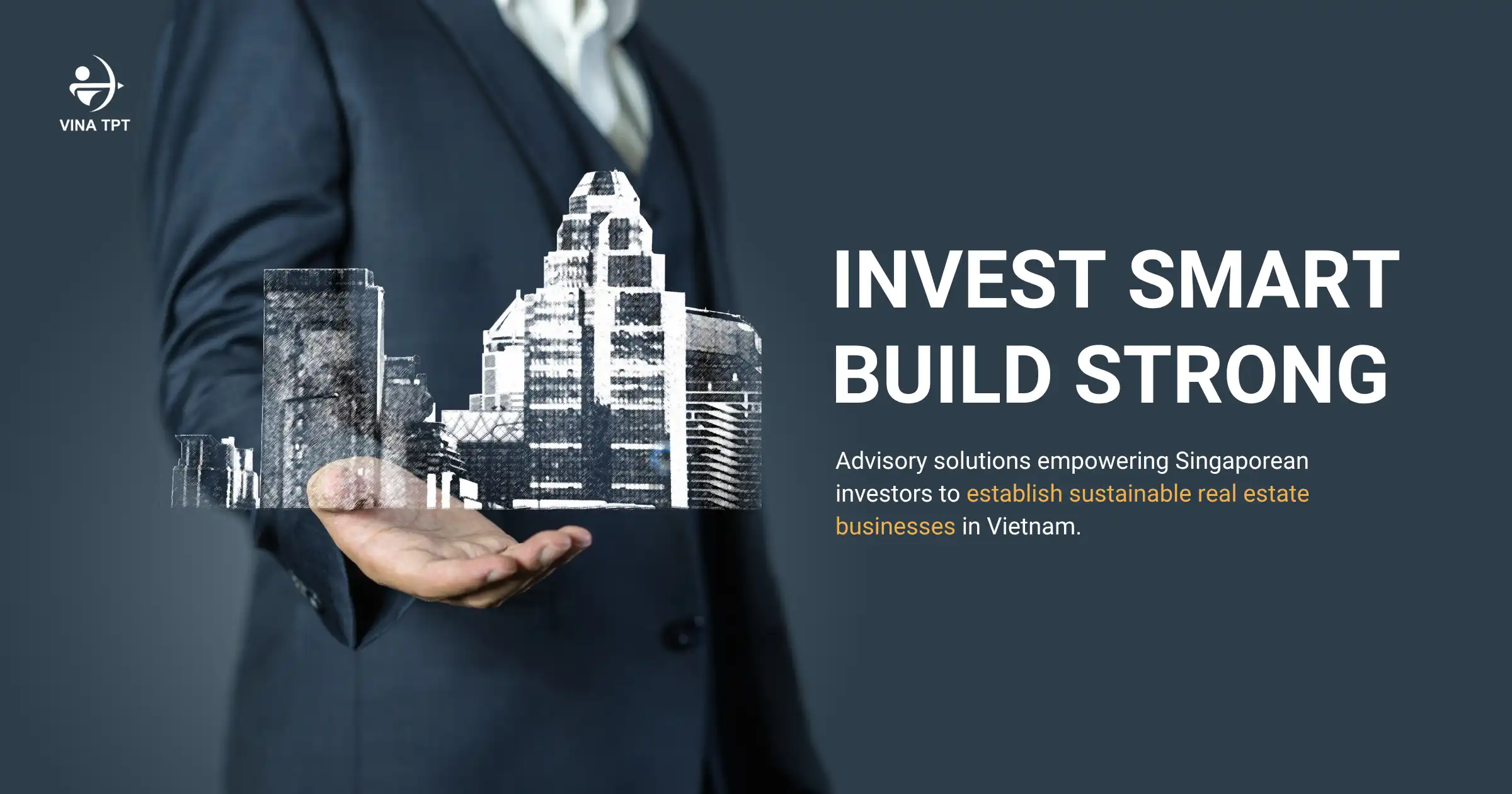1. Vietnam Real Estate: The Next Strategic Move for Singapore Investors
Over the past decade, Vietnam has become one of the most dynamic real estate markets in Asia, with rapid urbanization, high housing demand and a boom in industrial zones. In particular, Singapore is a leading financial, investment and business advisory center in the region, is considering Vietnam as a new “profit drop point” in its strategy to expand in Southeast Asia.
Singaporean investors see in Vietnam not only high profit potential, but also an opportunity to participate in a market that is changing strongly in terms of infrastructure, urban planning and Foreign Direct Investment attraction policies. Vietnam, with its affordable land prices, youthful workforce, and fast-growing transport infrastructure including airports, seaports, and metro lines, is emerging as a promising mirror of Singapore in its early development phase.
However, to realize the opportunity, investors need to clearly understand Vietnam’s legal framework, licensing process and tax mechanism – factors that can directly impact the profitability and safety of the project.
2. Before you invest: Understanding Vietnam’s Real Estate Landscape
Real estate in Vietnam is divided into many different types, including: industrial park development, housing projects, offices, resorts, trade – services and logistics. However, not all segments are open to foreign investors.
According to current regulations, investors can:
- Contribute capital or buy shares in Vietnamese enterprises with existing real estate projects.
- Establish a 100% foreign-owned company to develop projects if granted appropriate investment licenses.
- Lease or sublease land in industrial parks, export processing zones, high-tech zones.
However, direct ownership of land in Vietnam is not allowed, because land is owned by the entire people and managed by the State. Investors can only use land through leasing or joint ventures with domestic partners.
In addition, the tax and regulatory systems related to real estate (VAT, CIT, transfer tax, land fees) also have significant differences compared to Singapore. Lack of understanding or misapplication of investment structures can lead to legal risks or reduced profit efficiency.
At this stage, partnering with a professional business advisory firm becomes essential. A qualified advisory team can help Singaporean investors navigate Vietnam’s complex real estate regulations, review investment structures, and ensure full compliance with local laws. With expert guidance on legal, financial, and tax aspects, investors can make informed decisions and minimize potential risks from the very beginning. Business Advisory
Ảnh: Hình minh họa cơ sở hạ tầng VN
3. From Licensing to Launch: Key Steps in Establishing a Real Estate Business
The process of setting up a real estate business in Vietnam usually includes four main stages, requiring close coordination between investors, lawyers and management agencies:
Stage 1: Investment strategy consulting: Business Advisory
Investors need to clearly define their goals (developing new projects, acquiring, cooperating or operating), assess the legal feasibility of the model and choose a locality with appropriate policies.
Stage 2: Applying for an Investment Registration Certificate (IRC):
This is the first license that allows foreign-invested enterprises to carry out projects in Vietnam.
Documents typically required for IRC application include:
- Application for investment project implementation & Project proposal: Stating objectives, scope, scale, investment capital, location, and implementation schedule.
- Proof of investor’s financial capacity: Bank statements, audited financial reports, credit contracts, or collateral documents.
- Legal documents of the investor:
- For individuals: Notarized passport, consular legalization.
- For organizations: Business Registration Certificate or equivalent, consular legalization.
- Evidence of project location: Office/land lease agreement or land use rights certificate.
- Power of attorney/authorization letter (if the investor appoints a third party to handle procedures).
Stage 3: Enterprise Establishment (ERC):
After having IRC, investors register to establish an enterprise, determine the type of company (LLC, joint stock or joint venture). Choosing the right model will greatly affect the capital mechanism, voting rights and profit distribution.
Stage 4: Compliance and project implementation:
Enterprises must complete tax, insurance, financial and environmental procedures before officially starting operations. This is also the stage where business advisory services become especially important to ensure that all activities are legal and effective.
All foreign documents must be consular legalized and officially translated into Vietnamese before submission. This step often prolongs the preparation process, so it is recommended that investors cooperate with a reliable company registration service to ensure accuracy and save time.
4. Tax Business Advisory: Maximizing Profitability through Smart Structuring
In real estate investment, tax optimization and smart business structure are decisive factors for net profit. Vietnam applies corporate income tax (CIT) at 20%, but there are tax incentives for investment projects in industrial parks, economic zones or investment-encouraged sectors (logistics, infrastructure, social housing, etc.).
In addition, if investors know how to structure capital flows and divide profits reasonably, they can avoid double taxation between Vietnam and Singapore thanks to the Double Taxation Avoidance Agreement (DTA) signed by the two countries. This is a great advantage, but it can only be maximized when there is a business tax advisory team that understands both tax systems.
Vina TPT experts often advise Singaporean investors about business advisory on multi-level legal entity structure strategies, cash flow allocation and legal profit transfer, to ensure optimal profits while still strictly complying with regulations in Vietnam.
OPTIMIZE YOUR TAX STRUCTURE NOW
5. Common Mistakes Foreign Real Estate Investors Should Avoid
Despite the wide-open opportunities, many foreign investors including large corporations, have encountered trouble when investing in Vietnamese real estate due to common mistakes. Some typical mistakes include:
- Choosing the wrong investment model (for example, registering a trading company instead of a project development company, leading to restrictions on land use).
- Not updating legal changes related to land, environment and construction.
- Delaying in contributing capital as committed, violating the terms of the investment license.
- Choosing a local partner who lacks capacity or is not transparent, leading to disputes.
An excellent business advisory service will help investors avoid these mistakes right from the start, thanks to legal review, partner assessment and risk control throughout the investment process.
Ảnh: minh họa
6. Why Partnering with Vina TPT Business Advisory Makes a Difference
With over 15 years of experience in advising companies, Vina TPT Business Advisory Service’s team of legal, accounting and tax experts has worked with hundreds of international enterprises in the real estate, infrastructure and manufacturing sectors.
We provide end-to-end solutions, from developing investment strategies, applying for IRC/ERC licenses, advising on tax structures, to compliance management and post-investment operational accounting. Vina TPT’s strength lies in combining a deep understanding of Vietnamese law with international operational standards, helping Singaporean investors ensure compliance while optimizing profits.


